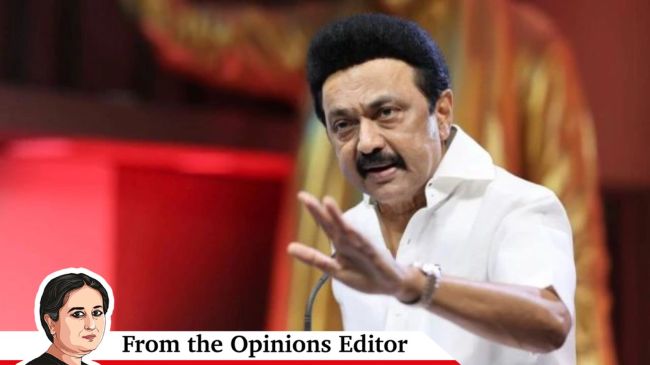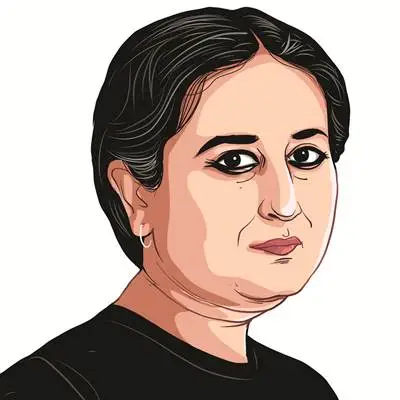Opinion Vandita Mishra writes: Noise over delimitation and what lies beneath
The political polarisation that stands in the way of crucial give-and-take settlements on delimitation and other complex issues looks very different at ground level.
 Finding a solution to the delimitation problem will require a departure from politics-as-usual and that this will be rendered doubly difficult amid the prevailing political polarisation. (Express file photo)
Finding a solution to the delimitation problem will require a departure from politics-as-usual and that this will be rendered doubly difficult amid the prevailing political polarisation. (Express file photo)
Dear Express Reader
In the past few days, the loud posturing by political parties on delimitation has pointed to the difficulties of addressing shared problems within the dominant framework of political polarisation. A polarised politics sees everything as a zero-sum game, in which the winner takes all and the loser is laid completely low. The delimitation dilemma that the Indian polity confronts, however, calls for more complex manoeuvres and nuanced negotiations that skirt binaries. A new balance must be struck between two sets of equally valuable democratic principles and values.
While one-citizen-one-vote shores up the constitutional promise of political equality, in a federal system, where different states have grown and developed differently over decades, there is an inequity it gives rise to, and a price to pay. In this case, it is being pointed out, the price — of a diminished voice in the polity — will be paid by states that have over the years reduced their fertility rates and stabilised their populations successfully. For the current impasse to break, therefore, the commitment to federalism will arguably need to leaven the fundamental promise of representation.
This will call for all players to shift from the prevalent common sense which favours majoritarian solutions to problems. Be it the demands for a caste census, for instance, and the accompanying slogan “jiski jitni sankhya bhaari, uski utni hissedari (the greater the number, the greater the share)”, or the template of “Hindu” assertion, both take recourse to a bareknuckled language of numbers, of “majority” and “minority”. There is a crucial difference, of course — in the former, the majority is disadvantaged, while in the latter, the one that is denied voice is the minority.
The point is that finding a solution to the delimitation problem will require a departure from politics-as-usual and that this will be rendered doubly difficult amid the prevailing political polarisation.
Having said that, an ironical feature of the polity today is also this — the same polarisation that stands in the way of crucial give-and-take settlements on delimitation and other complex issues and prevents a much-needed deliberation and dialogue between opponents inside and outside Parliament, looks very different at ground level.
Seen from below, the polarisation edifice stands on political lines that are being smudged continuously. In Ahmedabad last week, when Rahul Gandhi accused a section of his party leaders in the Gujarat unit of “conniving with the BJP”, he was, inadvertently, pointing to this reality.
Gujarat is a unique case, of course. It is a state of unbroken BJP dominance over decades, where the Opposition Congress is a much-depleted and much-demoralised force. In Gujarat, there is one-way political traffic. But it is common, across states, to see the hardening lines drawn at the top by party high commands twist and bend in the hands of criss-crossing politicians in local arenas. They change political colour with apparent ease and impunity. With fear and favour, they switch to the winner or the more powerful party, in search of tickets during elections, or for better positions and prospects in between polls.
This dissonance between the polarisation on top and the hectic criss-crossing below is taking a mounting toll on public trust in politics. It breeds voter cynicism and hurts the credibility of political players. But most of all, and most disquietingly, it cramps and constricts the space of the political alternative.
If on delimitation, the challenge for parties is to forge an elusive common ground, the other side of the coin is also this: All the rhetoric and appearance of polarisation on top cannot paper over the fact that all the players are not really holding up their ends, all the way down.
In other words, even as the political noise is ratcheted up and the contest seems to be becoming more and more competitive, the menu for the voter, the options she must choose from, may in fact be shrinking. That’s a disquieting image in a layered and diverse democracy.
Till next week,
Vandita





